Investigations Team – Enab Baladi
The idea of a federation for the Kurds in Syria was only five years old when it was first announced in 2016. This idea was not welcomed by any Syrian or regional party and, most importantly, it was declared with no constitutional reference and no central state.
Historically, Kurdish political action in Syria has been limited to stumbling attempts to organize the internal structure, which has often led to deepening differences because of splits. Kurdish political demands revolved around obtaining their “rights.” A federation has never been part of these sought-for rights, nor have these rights once mentioned “independence” or cessation of Western Kurdistan from Syria.
Before the Syrian revolution, the idea of autonomous government was not new to the Democratic Union Party, as it called in the final statement of the party’s second emergency conference in 2005 to “urge the state to change” and shift toward Democratic Confederation system. However, this call wasn’t clearly defined and was nothing but a copy of Öcalan philosophy in his vision of the “democratic nation”.
With the beginning of the Syrian revolution, the Kurdish political discourse began to change dramatically, given the historical opportunity that was available to obtain additional “rights” that could have never occurred to them under the Ba’ath Party. This change is manifested through the Kurdish National Council transition from claiming administrative independence in its first foundational statement to stressing need for the Kurds to obtain a federation in its third statement.
As for the Democratic Union Party, it took advantage of the beginning of the Syrian revolution as an opportunity to fulfil its previous goals. It started its journey by declaring the establishment of Council of Western Kurdistan at the end of 2011, thus forming a political body that competed with the Kurdish National Council.
People’s Council of West Kurdistan, affiliated to the Union Party, joined the “Movement for Democratic Society” (TEV-DEM) and engaged itself into negotiations with the Kurdish National Council. They agreed on the formation of the “Kurdish Supreme Committee” on July 2012. However, conflict with the Kurdish National Council led to the party’s unilateral declaration of “self-administration” on November 11, 2012, which later paved the way for the declaration of the federation.
This hastily conceived federation created new crises among the Kurds, for the Kurdish National Council expressed its rejection of it and considered it as an “unconstitutional and illegal move”. However, the People’s Council of Western Kurdistan adhered to and insisted on advocating federalism, but in accordance to its own philosophy.
Neither the Syrian opposition nor the regime welcomed these actions and proposals that swung between a declared federation adopted by the Democratic Union Party and a vague and tuneless one that the Kurdish National Council was playing at.
However, after more than a year and a half since the first federation declaration, the opposition and the regime were less concerned about the Kurdish Federation than before, due to its growing impracticality in view of the international policies towards Syria on the one hand and the Kurds’ “frustrating” regional situation on the other.
Syrian and International Rejection and a Frustrating Internal Situation
Obstacles to Federalism
Despite all the challenges that the Kurdish federal project has witnessed since the beginning of the Syrian revolution, the recent events which occurred in Iraqi Kurdistan with the President of the region, Masoud Barzani, retracting from announcing the separation, represented a state of great frustration for the Syrian Kurdish project. This situation seemed as a clear manifestation of regional rejection of granting Kurds any form of independence.
The “strike of Iraqi Kurdistan” coincided with the progress in the war against the Islamic State Group (IS) in Syria, which the Kurdish Democratic Union Party (PYD) relied on to expand its influence. However, the move of the Syrian regime with the support of the Russians to the west of the Euphrates reduced the possibility of Kurdish troops’ advancement in Deir ez-Zor, in addition to the Turkish moves in the vicinity of the city of Afrin which served as a declaration of the demise of the Rojava and the separation of the provinces of self-management.
As for Raqqa, which the Syrian Democratic Forces have recently taken control of with the support of the International Coalition forces, it is mostly expected to be handed over soon to the Syrian regime through Russian-American agreement. This is going to be just another disappointment for the Kurds by their close ally, the US, that has repeatedly left them halfway.
In case all the previous factors were added to the Russian continuous emphasis on the importance of “Syrian territorial integrity” and working out a political solution in Syria that would enable Assad to remain in power for a transitional period, the federal project now seems to be a sort of resistance to which the Kurds are clinging to against everyone’s will.
“Syrians Are to Blame”
Most Kurdish politicians and journalists point out that the regime and opposition rejection of the federation is the main obstacle to the realization of the Kurdish project, regardless of the regional and international factors and conditions. Most of them believe that the idea of a federation is still feasible despite the obstacles.
The Kurdish writer, Shoresh Darwish believes that “the regime wants the country to be under its central authority, and its war against Syrians is nothing but a fulfilment of this determination. How will it then allow parties to govern themselves on their own? On the other hand, there is a wide spectrum of opposition, which is influenced by the regime rhetoric rejecting the alleged division. Others reject the Kurdish demand for a federation because it intersects with the interests of some countries in the region.
In an interview with Enab Baladi, Darwish justified the need to cling to the federation saying that “it does not mean the division of the state into smaller states, but rather the reduction of the power of central government and the distribution of powers over the regions.” He stated that “in many ways the decentralization model constitutes one possible way out for all Syrian regions, which have suffered from debasement and injustice by the central regime”.
Omar Kujri, the Editor-in-Chief of Kurdistan newspaper, agreed with Darwish blaming the regime and the opposition, but he mostly put the blame on the Syrian opposition for its negative view of the “Kurdish problem.” He asserted that it “shamelessly expressed thoughts that the Syrian regime won’t reveal for the time being because of the current security situation.”
Exhausted by the Internal Crisis
As a reaction to the pressure exercised by the regime and the opposition, the Kurds could have showed a kind of cohesion that would help them prioritize and achieve the appropriate convergences “to obtain their rights.” In this context, Kujri asserts that “the Kurds have not taken advantage of their own potential because of the hateful party rivalry. We should never forget that Kurdish youth have unfortunately left their homes to reach the point of no return, because of coercive policies of de facto authority in the Kurdish areas.”
In an interview with Enab Baladi, Kujri stated that “the problem is that the Kurds are in a state of rivalry. For example, the forms of self-management were available in Syria’s Kurdistan, but only by the Democratic Union Party and the other Kurdish parties and the community components in the region. However, these parties were more fictitious than real in fact, as they did not have any effect or importance and a large number of them remained out of this process, such as the Kurdish National Council parties whose role and history cannot be underestimated.
Abdullah Kaddu, a member of the central committee of the Kurdish Yekiti Party in Syria, points out to Enab Baladi that “what makes it very difficult for the federation as solution to achieve anything in the country is the existence of two divergent hypotheses for it. Based on the points of view of both the Democratic Union Party and the Kurdish National Council, I find it difficult for the two frameworks to find any possible agreement about the Federation in the near future.”
Democratic Union … Hope Imposed with the Power of Arms
With the prevailing atmosphere of pessimism and accusations that affected the Kurdish parties or other
Syrian parties of trying to thwart the idea of the Federation, the Democratic Union Party seems to stick to the achievements it made in this context. Although the basis on which the Federation was built is
“unsound”, it seeks to “legitimize its Federation” through imposing its conditions in the negotiations, and through military force.
Spokesman for the Democratic Union Party, Joan Mustafa, finds that what his party presented was “a democratic project to save Syria from its crisis and to stand in the face of the danger of division that many forces, including the regime, have been trying to achieve.”
In an interview with Enab Baladi, Mustafa adds, “we have the military and popular forces that would be able to protect our project. We have become a key actor without whom the Syrian crisis cannot be resolved.”
As for the leader of the Movement for a Democratic Society (TEV-DEM, PYD is one of its affiliated parties), Abdul Salam Ahmed, he links Syria’s fate to the agreements that the conflicting parties might reach in relation to the Kurds: “It is not possible to find a solution to the Syrian crisis without reaching agreements with representatives of the Democratic Federation of Northern Syria, and we have the military force that enables us to counter any aggression against our regions, whatever the aggressor force might be. The adoption of the military option by the regime will lead to the division of Syria.”
One Federation and Two Points of Views:
Since the Democratic Union Party has been founded, and since its military wing imposed its control on areas with a Kurdish majority in Syria in 2012, the role of the National Council, which was the first Kurdish combined political body to be formed after the start of the Syrian revolution, has retreated in the hope of representing the Kurds in international forums and defending their interests.
The continuing competitive situation between the two main Kurdish poles has shown considerable divergence in political views. National demands have not been able to bring the points of views closer, even in relation to core matters such as the form that Syria’s expected government might take.
The Council presents the idea of Federation as a “solution” to the political crises in Syria, allowing the Kurds to obtain their “rights” within the “region in which they form the majority.” However, the Federation which the Council talks about is a federation that “combines geography with nationalism” This contradicts with the idea of political and geographic unity”, which the council calls for as well, as there are pure Arab areas between Al-Hasakah Governorate and the two districts of Ayn al-Arab (Kobanî) and Tell Abyad in the north-east from one side, and Afrin District in the northern countryside of Aleppo from another side, in addition to a good proportion of Arabs in Al-Hasakah.
In a previous interview with Enab Baladi, Fouad Aliko, the representative of the Kurdish National Council and a member of the National Coalition of Syrian Revolution and Opposition Forces, said that the opportunity to realize the Federation sought by the Council in the future will contribute to the collection of components in the Kurdish areas to create a unified vision to run the region.
This means that the vision that the Council adopts in shaping the desired Federation cannot be determined unless it is applied on the ground. At a time when the Council is criticizing the PYD’s Federation, it holds a “principled philosophy” about the project which approaches the bases on which the opponent political system is building its existing project, with regard to the acceptance of all components and their representation in the governing authority of the territory.
The idea of Federation put forward by the Democratic Union Party in the draft of “Constitution of Western Kurdistan”, considers that the Syrian border strip from Al-Malikiyah (Dayrik), to Afrin, are Kurdish areas, and will be within the Federation.
Through self-administration, the party exercises its “Federation” that is based on the administration of areas controlled by its military wing (the Syrian Democratic Forces) and allows participation in its institutions of non-Kurdish components according to their proportion in the society, as he put it. It should be noted that human rights organizations and Arab activists doubt the declared number of people and the prevalence of the ethnic components that the Democratic Union Party talks about.
Despite the great convergence in the perception of the Federation for the Party and the Council, the latter still insists that the PYD’s declaration of the federation is illegitimate and accuses it of being away from the national project and being linked to an external agenda that makes it deviate “from the Kurds’ aspirations.”
From “Federation” to “Constitutional Rights”
How Has the Kurdish Demand Been Downsized?
With the PYD’s sticking to the components it has achieved for the Kurdish region in accordance with the “federation” in the future of Syria, and the Kurdish National Council’s insistence on asserting its claim to the Federation as a form of future rule of the country, a number of Kurdish politicians and researchers consider the issue “more realistic” based on the current situation and the data that indicate the difficulty of achieving this demand.
In this sense, the Kurdish “non-partisan” concept on the form of government, has been downsized from reinforcing the importance of the idea of the Federation as a guarantor of Kurdish rights in Syria, to making some concessions in return for achieving consensus with the Syrian parties which would get the Kurds away from the circle of accusation of dividing the country, and would guarantee them some interests in case a peaceful solution to the conflict is reached.
Badr Mulla Rashid, a researcher in the Kurdish matters, points to a change in the regime and the Russian positions towards the Federation. In the first eight months of 2017, facts showed a preliminary acceptance to negotiate on a type of self-management. However, after the Iraqi Kurdistan independence referendum, things have changed. The regime has started using expressions that warned against “division plans”, and threatened those who were in support of the division with “confrontation and facing a worse fate than that of the administration of the Iraqi Kurdistan region.”
Mulla Rashid has talked to Enab Baladi about Russia’s position that called to hold the so-called “People’s Convention” in the city of Sochi. Its name has later changed to be the National Convention. In addition, the enthusiasm of Russian statements has subsided in favor of pushing the regime to accept “self-management” and to negotiate with it.
“Just One Step Back Rather Than a Return Back to Zero”
Researcher Mulla Rashid believes that “Syria will not return to the former central government.” However, at the same time, he points out that the Democratic Union Party’s association with Kurdistan Workers’ Party (PKK) in Turkey will be an important reason for the regional states’ indignation that “might reach an agreement that undermines any existential threats for it.”
Therefore, the idea of Federation is not a guaranteed option. It can be replaced by decentralization by persuading the opposition to accept political decentralization, or to accept the regime in one form of self-administration and ensure the “votes of the present self-administration representatives” within “the Parliament or the future People’s Council of Syria”, according to Mulla Rashid’s point of view.
Relying on a “Regional Consensus”
In addition to pointing out the Russian position on “the Kurds’ right to obtain a territory within Syria,” the United States, which continues to militarily support the Kurds did not welcome the declaration of the Federation in 2016. It rather stressed that “it will not accept any areas of self-governance or semi-autonomous areas in Syria,” which could be considered as just another example of the United States failing the Kurds.
“The success of the federal system project in Syria is shown through the influence and role of the main players on the ground, America and Russia, on the basis of the essence of Geneva 1,” said Kaddu, a member of the central committee of the Kurdish Democratic Political Union party in Syria.
One of the solutions proposed by Kaddu in his interview with Enab Baladi is the convening of a Syrian conference that will include all the active national forces to create a new constitution that will achieve the common interests of all Syrians, apart from nationalist and religious alienation and exclusion.
For his part, Suleyman Osso, who is a member of the political bureau of the Kurdish Democratic Political Union party, “Yekiti,” and a member of the Foreign Relations Committee of the Kurdish National Council, calls on the Kurds to attend all international forums, “in order to support our case strongly, and demand constitutional guarantees which ensure a better future.” He considered that the continued unity and the Kurdish position have a strong impact on international and regional positions, as well as on the opposition parties and the regime as well. ”
Assurance: “We Do Not Seek Secession”
According to Kurdish writer Shoresh Darwish, fears of dividing Syria in the case of federalism are unrealistic, because “Kurdish and Kurdish-majority areas are in dire need of all Syrian regions, and there is an intertwined relationship (interrelationship) between Arabs, Kurds and Assyrians. Therefore, concerns about the division of Syria are baseless (groundless) “.
Darwish also links federalism and the strengthening of the national spirit in Syria, this is because “The Kurds want to reassure themselves after decades of grave injustice,” he said. He added “Perhaps the self-government formula (forms of self-rule) is an effective means of reassurance that might restore to the Syrian Kurds a part of their Syrian national identity and bring them back to the Syrian homeland with a reasonable degree of human equality and dignity “.
Despite the “challenges which face the Kurds to defend their project in decentralization, this project remains dependent on their relationship with the rest of the Syrians, and the approval of the Syrians.”
“All Doors Are Closed”
The editor of the Kurdistan newspaper Omar Kujri, excludes “any real breakthrough at the Kurdish level,” because “partisan and immediate interests and sensitivities had serious adverse effects in the Kurdish memory, it has reached the extent of apparent and not implied enmity,” and he frankly accuses “the authority of the Democratic Union, to be fully responsible. If it had not been an authoritarian regime in power, it would have been different.”
In an interview with Enab Baladi, Kujri mentioned a number of reasons why Kurds are not able to obtain a territory in Syria, including PYD anti-opposition, which hinders any understanding between the two sides. As for the National Council, despite being represented in the opposition, it cannot be an influential party because of the “enormous siege of de facto authority”.
He added “I am not optimistic about achieving any gain for the Kurds and the opposition in light of the miserable situation of the current situation. Unfortunately, the regime benefits from this common antagonism between the Syrian opposition and the Kurdish political formation in the Syrian Kurdistan.”
How do people in Al-Hasakah view the experience of self-management?
In November 2013, the Democratic Union Party announced the subjugation of three areas controlled by the “Syrian Democratic Forces” for self-administration, which formed a “federal nucleus” that was announced less than three years later.
The self-government has established 22 bodies that include various sectors of defense and religious affairs and are associated with the “Syrian Democratic Forces” (PYD military arm), the Asayish (Kurdistan Regional Government) Internal Security Forces and the Women’s Protection Units (YPJ).
The Democratic Union Party tried to prove through its self-government institutions its ability to manage its areas of control and to provide the appropriate resources, expertise and competencies to serve all the service, military and financial sectors. However, the emerging experience faltered in several areas. It faced major obstacles; the most important was the presence of centers of the regime in the heart of the cities of al-Hasakah and Qamishli, which imposed itself as a link to the central authority in the heart of an “independent territory.”
In an earlier report, which was published in Issue 295, Enab Baladi discussed self-government emergence conditions and the laws it imposed and the subsequent societal changes, along with its financial resources and the provision of services to the inhabitants of its provinces.
According to the views identified by Enab Baladi during a survey in al- Hasakah province, there is a general satisfaction among people with services that were available in the province compared to other Syrian provinces during the war, while some respondents did not see that the continuation of “self-government” and Kurds achieving federalism as something which is possible to be realized.
The Kurdish engineer Hajjar Jazaa, from the city of Ras al-Ain, believes that “self-government” has achieved some of the “living objectives of the population, such as the provision of water, electricity and stability.”
The Arab lawyer Hassan Ali al-Assaf, from the city of Qamishli, agrees with Jazaa, and points out that “the administration” was able to fill in the vacuum that resulted from the absence of the state and its vital institutions and protected the people and property.
The Arab activist Tuqa Hassan, a resident of Qamishli, has a different opinion, and noted that “self-government” did not meet the necessary life necessities of electricity, water and fuel, and appointed employees who lack experience and competency, despite some of the advantages which consist of “securing the region as much as possible and putting forward ideas for development projects.”
Sulnar Mohammed, who is a Kurdish activist from the city of Derik, claims that “self-government” is incapable of providing all the population’s needs because current conditions prevent any authority from meeting all requirements, but at the same time indicates that the province of al-Hasakah is rich in resources that must be invested.
Socially, Bahjat Ahmed, a writer from Derik, believes that self-government “has managed to bring together all the components of the region and give them their freedom to play their role in building the region, and their areas have become a destination for many Syrians; while the social fabric of Syria suffers from disruption by sectarian and ethnic conflicts.”
Aram Sarkis, a Christian citizen of Qamishli, believes that self-government created a “new and different reality for the Syrian map, through intellectual advancement, provision of security and safety, and awareness-raising by allowing organizations to work, which are steps to move society to the first features of a civil state, even if it were with an Iron fence, and this is justified in our time due to the absence of deterrents.”
As for the Activist Mohammed Mezher, who is an Arab from the city of al-Hasakah, he does not see any positive aspects in the “self-government” experiment, whose only concern was to raise money and show itself as strong and powerful without regard to citizens.
Mezher also criticized the administration’s issuing of “laws which are alien to our region without legal or realistic study such as education and the imposition of the Kurdish language, and considering Rojava as completely isolated. He added “One of their greatest calamities is that they considered that the people of Syria who are displaced from neighboring provinces are strangers to the region,” and they must enter on bail and they built camps for them in the wilderness as if they were not Syrians. ”
While Kurdish engineer Najdavan Shaker is optimistic that the Kurds will get federalism in the current “self-government” areas, according to “data on the ground”, Mezher insists that the Democratic Union Party will not be able to achieve federalism, because there is no popular support that can adopt its project, and he pointed to the international situation that hinders federalism.
The Kurdish activist, Solana Mohammad, also ruled out the possibility of the Kurds achieving federalism because they “need international recognition, which has not happened yet.” She added “Politically, we have not seen serious positions from European countries, let alone the Kurdish-Kurdish differences, which constitute an obstacle to the success of the federal project.”
This material has been achieved by Enab Baladi in cooperation with ARTA FM.
if you think the article contain wrong information or you have additional details Send Correction
النسخة العربية من المقال
-
Follow us :











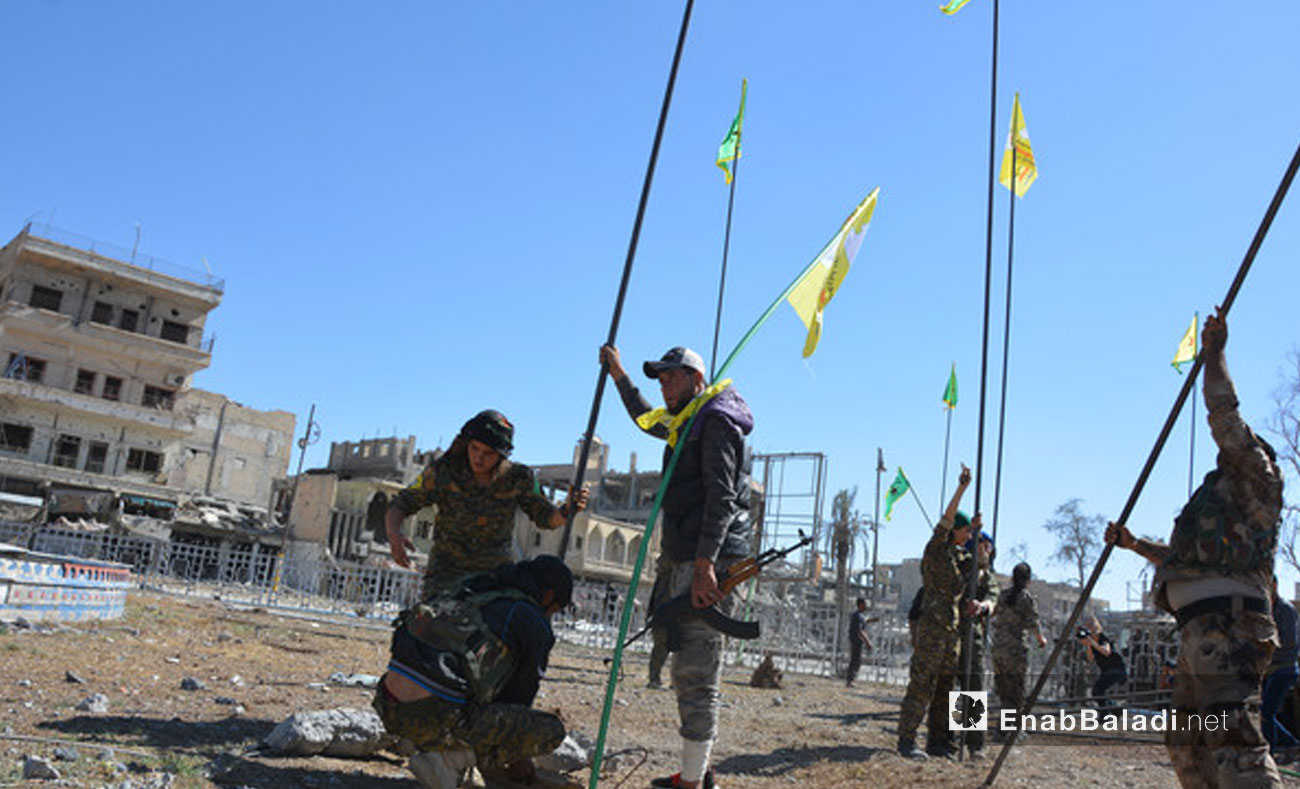
 Syrian Democratic Forces after they entered Raqqa - October 19, 2017 (Enab Baladi)
Syrian Democratic Forces after they entered Raqqa - October 19, 2017 (Enab Baladi)





 A
A
A
A
A
A

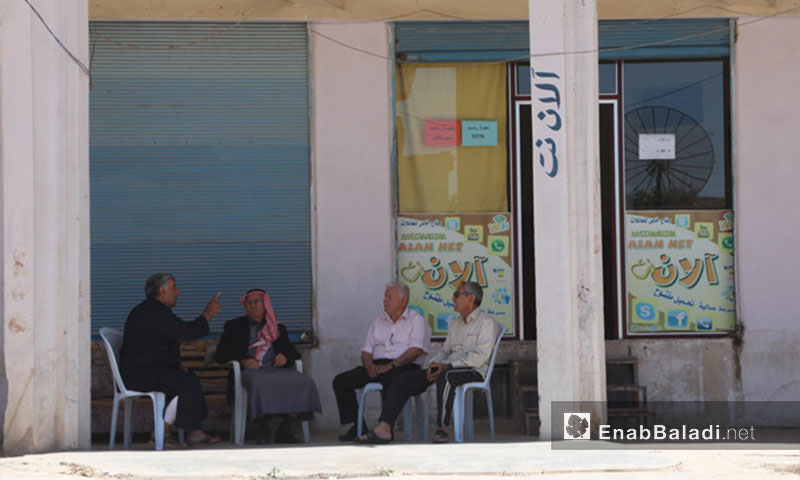
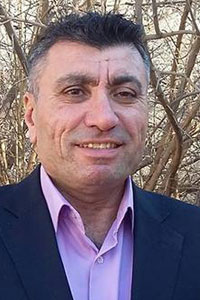
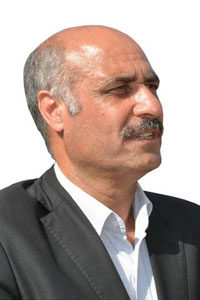
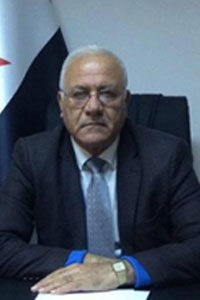
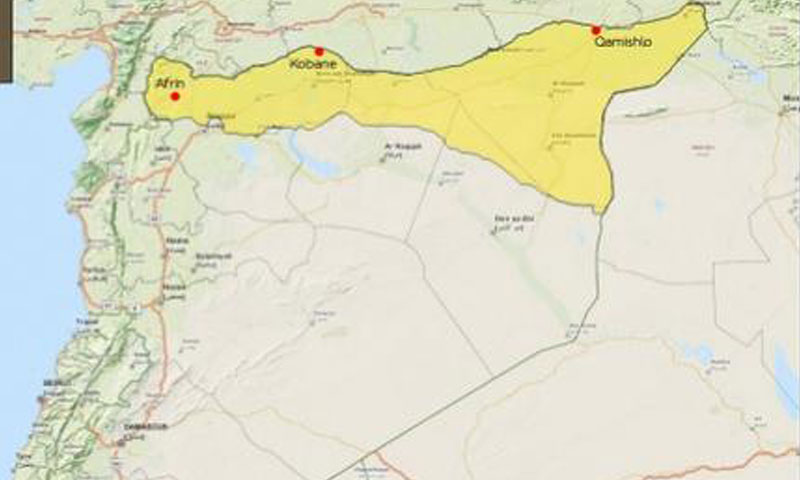
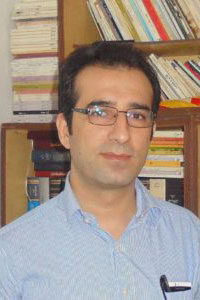
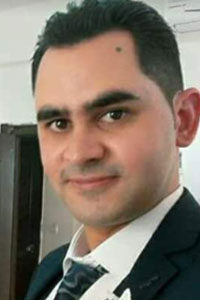
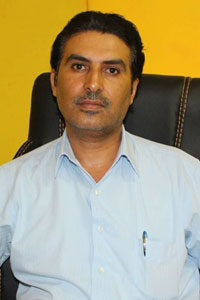


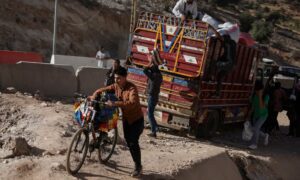
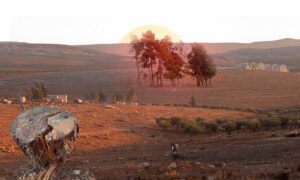
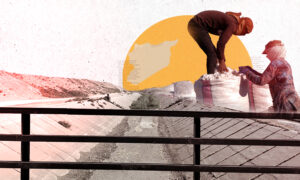
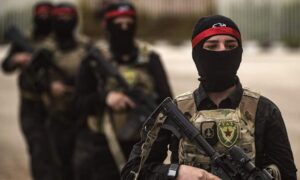
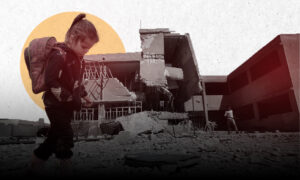
 More In-Depth
More In-Depth